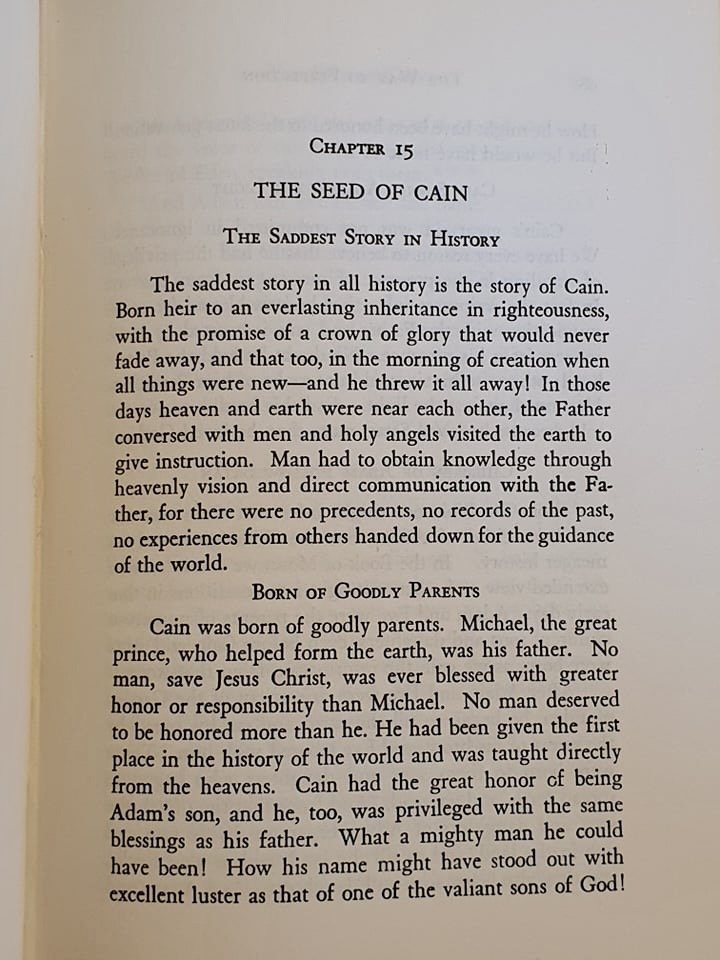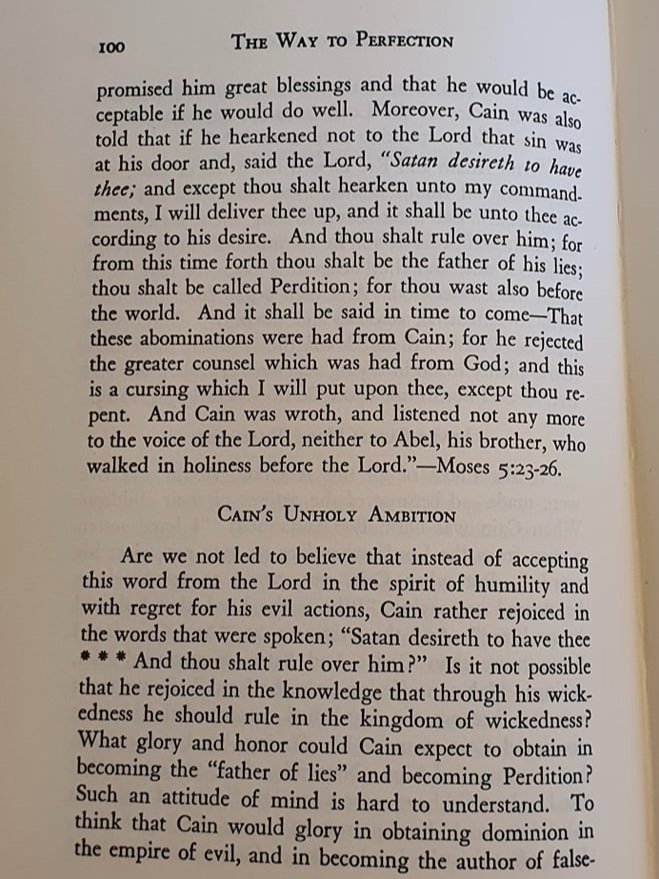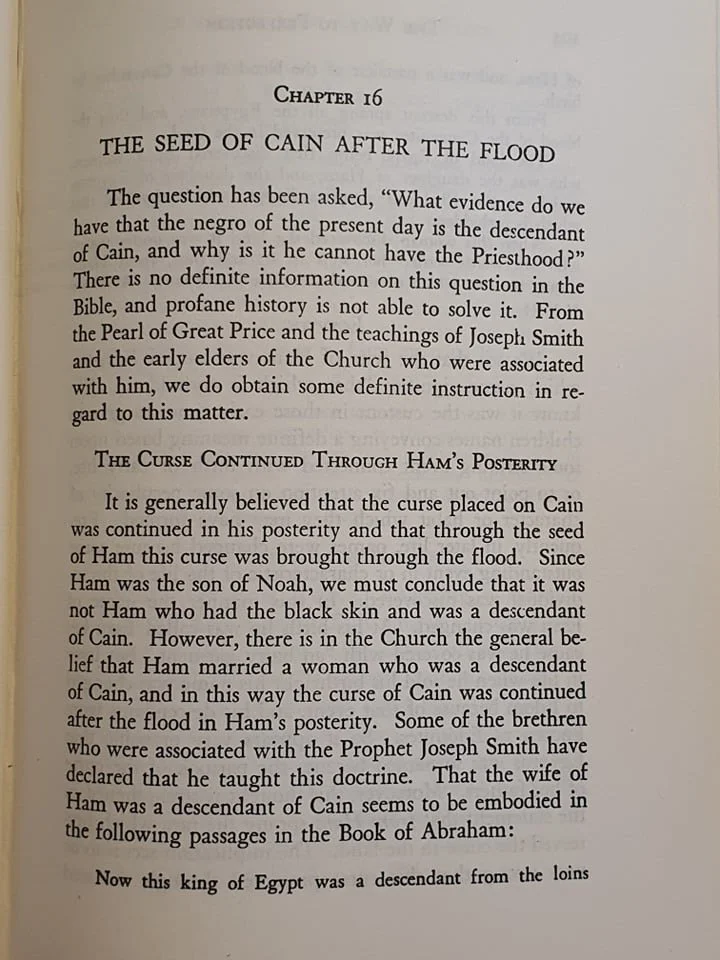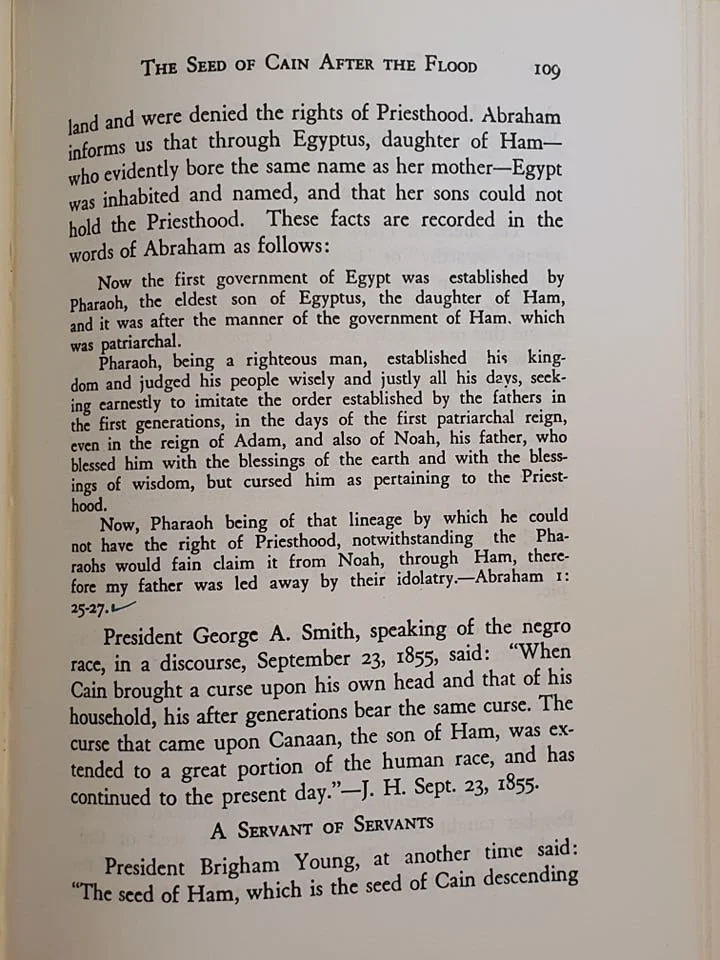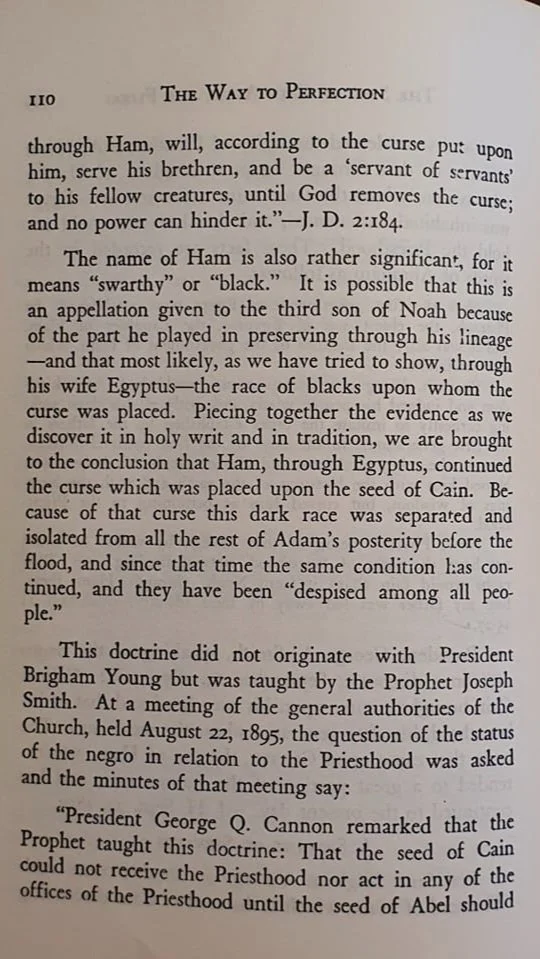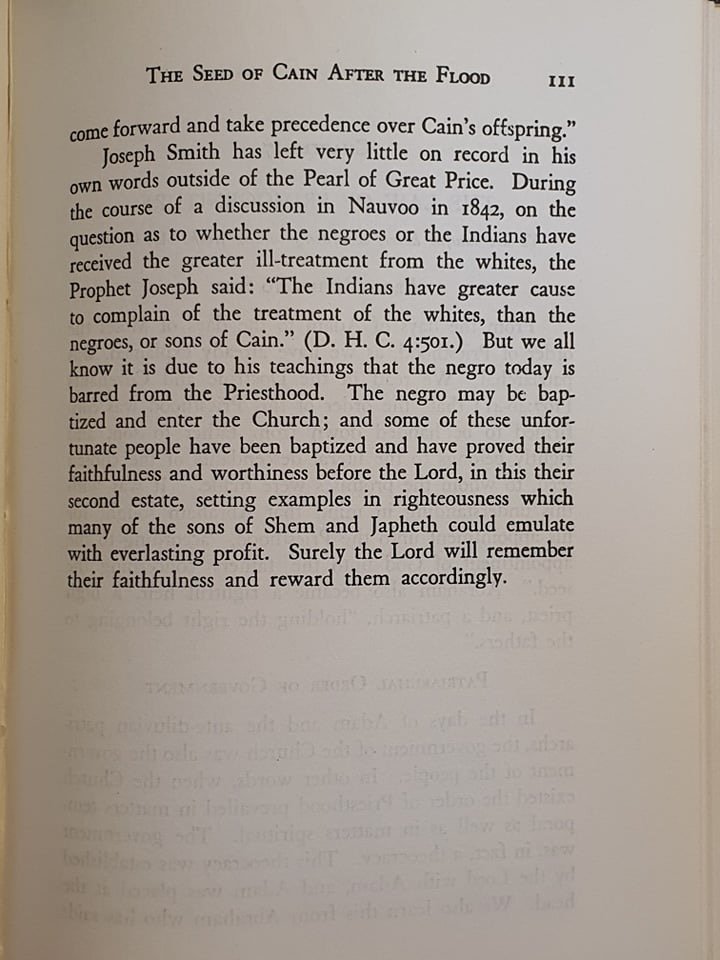Come, Follow Me: Old Testament - Genesis 5; Moses 6
Week 4: January 17th – January 23rd
Week 4 of the ‘Come, Follow Me’ lesson is almost exclusively about the book of Moses and the story of Enoch. The lesson states:
Most of Genesis 5 is a list of the generations between Adam and Eve and Noah. We read a lot of names, but we don’t learn much about them. Then we read about Enoch, six generations from Adam, who is described with this intriguing but unexplained line: “And Enoch walked with God: and he was not; for God took him” (Genesis 5:24). Surely there’s a story behind that. But without further explanation, the list of generations resumes.
Thankfully, Moses 6 reveals the details of Enoch’s story—and it’s quite a story. We learn of Enoch’s humility, his insecurities, the potential God saw in him, and the great work he performed as God’s prophet. We also get a clearer picture of the family of Adam and Eve as it progressed through the generations. We read of Satan’s “great dominion” but also of parents who taught children “the ways of God” and of “preachers of righteousness” who “spake and prophesied” (Moses 6:15, 21, 23). Especially precious is what we learn about the doctrine these parents and preachers taught: faith, repentance, baptism, and receiving the Holy Ghost (see Moses 6:50–52). That doctrine, like the priesthood that accompanies it, “was in the beginning [and] shall be in the end of the world also” (Moses 6:7).
This lesson is basically all about the the story told in Moses. Enoch is mentioned a few times in the Bible, both in the Old and New Testaments but we are only told a few details about him from these books. The Bible states:
Enoch was a descendant of Adam (Genesis 5:3-23)
Enoch walked with God (Genesis 5:24)
Enoch was “translated” (taken by God to heaven so did not experience mortal death - Hebrews 11:5)
Enoch prophesied of the Second Coming of the Lord (Jude 1:14-15)
The Book of Moses however contains a much more detailed history of Enoch including:
“God revealed himself to Enoch, Moses 6:26–37.
Enoch taught the gospel, Moses 6:37–68.
Enoch taught the people and established Zion, Moses 7:1–21.
Enoch saw all things, even unto the end of the world, Moses 7:23–68”. (See Guide to the Scriptures - Enoch)
This is another week where all of the scripture study points actually come from Moses and not the Bible.
Scripture study
Moses 6:26–36: A prophet is a seer.
As you study Moses 6:26–36, what do you learn about eyes, darkness, and seeing? In Enoch’s time, who could not “see afar off”? Why were these people unable to see truth? What was Enoch able to see? What has built your faith that modern-day prophets are seers? (see verse 36; Guide to the Scriptures, “Seer,” scriptures.ChurchofJesusChrist.org).
This study section asks what has “built your faith that modern-day prophets are seers”. For me this question is simple to answer because I do not believe that they have personal communication with any sort of God. Beyond my reasons for not believing in God, I feel this way because of the ever-changing narrative that they seem to give. Historically there have been so many scriptural and policy changes about things that have caused actual harm to people, and as we progress as a society the LDS church has tried to distance itself from racist, sexist, and homophobic teachings. The church has many ways to explain or justify these changes, these include:
Claiming old articles/talks contain “practices and language of an earlier time”
Claiming that the Prophet was not making a revelation at the time that he spoke, he was simply giving a personal opinion.
Claiming that Prophets are not infallible (which directly contradicts their teachings)
Claiming that the revelation is ongoing and we simply do not understand the Lord's reason for the revelation/policy
Beliefs about the Prophets:
The Prophet does not have to say “Thus sayeth the Lord” to give us scripture - “Sometimes there are those who haggle over words. They might say the prophet gave us counsel but that we are not obligated to follow it unless he says it is a commandment. But the Lord says of the Prophet Joseph, “Thou shalt give heed unto all his words and commandments which he shall give unto you” (D&C 21:4; italics added).
Said Brigham Young, “I have never yet preached a sermon and sent it out to the children of men, that they may not call scripture” (Journal of Discourses, 26 vols. [London: Latter-day Saints’ Book Depot], 13:95)” (see Teaching of the Living Prophet)
The prophet is the only man who speaks for the Lord in everything - “In section 132, verse 7, of the Doctrine and Covenants the Lord speaks of the Prophet—the President—and says: ‘There is never but one on the earth at a time on whom this power and the keys of this priesthood are conferred.’”
Those who believe that the Prophet “speaks as a man” are proud people - “The two groups who have the greatest difficulty in following the prophet are the proud who are learned and the proud who are rich. The learned may feel the prophet is only inspired when he agrees with them; otherwise, the prophet is just giving his opinion—speaking as a man. The rich may feel they have no need to take counsel of a lowly prophet” (The Teachings of Ezra Taft Benson [1988], 138)”.
Living Prophets are better than any scriptures - There have been numerous points in LDS history when this topic has come up, we have a talk given at the 1897 General Conference where
The Prophet and the Twelve will never lead us astray - President Joseph Fielding Smith said: “I think there is one thing which we should have exceedingly clear in our minds. Neither the President of the Church, nor the First Presidency, nor the united voice of the First Presidency and the Twelve will ever lead the Saints astray or send forth counsel to the world that is contrary to the mind and will of the Lord.” (“Eternal Keys and the Right to Preside,” Ensign, July 1972, p. 88.)
Beliefs & Teachings of Prophets and other Church leaders
Joseph Fielding Smith - Man will never set foot on the moon: On May 14, 1961 he made this statement: “We will never get a man into space. This earth is man’s sphere and it was never intended that he should get away from it.” Then he adds: “The moon is a superior planet to the earth, and it was never intended that man should go there. You can write it down in your book that this will never happen.”
Bruce McConkie - Animals had spirit families the same way that humans did: Animals were placed upon the earth in the same way Adam and Eve were: they were born of resurrected parents. A resurrected cow, for instance, came from an earth that has already passed through what we now experience, and through the normal birth processes had offspring…When they, the creators, that is all the noble and great ones who helped Elohim, Jehovah and Michael in the creation, when they helped they literally planted seeds. This we understand from both the temple account and the Pearl of Great Price accounts of the creation.
“Where did they get the seeds? From another sphere, from which they brought them. This means that the same kinds of animals and vegetables exist on all other worlds. The seeds came from some other planet, or planets. The same thing is true of horses, elephants and all animals. But this is so far beyond the saints that we don’t preach it.
“It means some resurrected elephants came and had offspring. Afterwards came the fall of Adam. All this is had in the sealed portion of the Book of Mormon. That’s why we don’t have the sealed portions. We’re trying to be kind to all the evolutionists at the BYU, hoping that if given time and opportunity, they will repent and believe the gospel. For political reasons we don’t tell them more”.
Joseph Smith - Quakers lived on the Moon: Oliver B. Huntington recorded in his journal (February 1881) that Joseph Smith could use the seer stone to “See whatever he asked the Father in the name of Jesus to see” and that Joseph had stated the moon was inhabited by people who were 6ft tall and dressed “very much like the Quaker style”. These people were said to have a lifespan of hundreds of years.
(Journal of Oliver B. Huntington, book 14, original at Huntington Library, San Marino, Calif.; also vol. 3, p. 166 of typed copy at Utah State Historical Society).
After Joseph Smith died Brigham Young became the next Prophet of the Church. In July of 1870 he was quoted saying “Who can tell us of the inhabitants of this little planet that shines of an evening, called the moon?... when you inquire about the inhabitants of that sphere you find that the most learned are as ignorant in regard to them as the ignorant of their fellows. So it is in regard to the inhabitants of the sun. Do you think it is inhabited? I rather think it is. Do you think there is any life there? No question of it; it was not made in vain"(Journal of Discourses, vol. 13, p. 271).
Russel M. Nelson - Evolution is not believable: “Through the ages, some without scriptural understanding have tried to explain our existence by pretentious words such as ex nihilo (out of nothing). Others have deduced that, because of certain similarities between different forms of life, there has been an organic evolution from one form to another. Many of these have concluded that the universe began as a “big bang” that eventually resulted in the creation of our planet and life upon it….To me, such theories are unbelievable!” (see The Magnificence of Man).
In a separate interview Nelson also advised that “man has always been man. Dogs have always been dogs. Monkeys have always been monkeys. It’s just the way genetics works”.
Brigham Young - The Punishment for Black-White interracial marriage should be death: On at least three occasions (1847, 1852, and 1865) Smith's successor Brigham Young publicly taught that the punishment for black-white interracial marriages was death, and the killing of a black-white interracial couple and their children as part of a blood atonement would be a blessing to them.
Brigham Young - Lots of other racist stuff: He further stated that interracial children are sterile "like a mule", teaching later repeated in a church magazine. Young taught that the moment the church consents to white members having children with black individuals the church would go to destruction, and that, "Any man having one drop of the seed of Cane in him cannot hold the priesthood.”.
The point of bringing up these examples is to show that having faith that modern-day prophets are seers is not something we should do. Faith is not a reliable means to get the truth, and while some of these examples are extreme or humours there are some very real policies in place right now that harm people. I have written more about how prophets are not an unfailing safety net of truth here.
Moses 6:26–47: God calls us to do His work despite our inadequacies.
It’s not unusual to feel overwhelmed with what the Lord has called us to do. Even Enoch felt that way when the Lord called him to be a prophet. As you read Moses 6:26–36, look for why Enoch felt overwhelmed and what the Lord said to give him courage. In verses 37–47, look for ways the Lord supported Enoch and empowered him to do His work (see also Moses 7:13). You might compare Enoch’s experience with that of other prophets who felt inadequate, such as Moses (see Exodus 4:10–16), Jeremiah (see Jeremiah 1:4–10), Nephi (see 2 Nephi 33:1–4), and Moroni (see Ether 12:23–29). What do you feel God wants you to learn from these scriptures about the work He has given you to do?
See also Jacob 4:6–8.
I feel that this sort of teaching sets people up for failure, specifically more vulnerable members of the church. The title suggests that we are inadequate but that through faith in God we can overcome these inadequacies and succeed. It is a noble thought, and would be great if we were talking about something small that was achievable for everyone but this is not always the case. There are certain things expected of men/women who are members of the church and sometimes people don’t want to fulfil these, or physically can’t. These can include:
Paying 10% of income to the church
Getting married to someone of the opposite sex
Having a child
Serving a mission
Accepting a calling
Living the law of chastity (especially important for anyone who has been abused)
There are several reasons why a person can’t/won’t fulfil some of the above examples and due to the nature of their beliefs it can lead them to feel like they are failing in the work that “god” wants them to do. I feel that the LDS church loves to tout people like Enoch as shining examples of someone who overcame their inadequacies to follow God’s word because they can use it to try and manipulate people into believing that they should go against what they want/feel and put God’s will first.
This sort of thinking does not take into consideration real issues like a woman physically not being able to have children, or not wanting children. It doesn’t take into account someone struggling with anxiety and depression and feeling able to carry out a mission/calling. I am not criticising this chapter alone, but the way in which the Church attempts to control and influence its members by using guilt and shame for non-compliance. Faith, trust, and prayer do not make the above tasks achievable to everyone and no one should feel like their spirituality is failing because they can’t achieve them.
Moses 6:48–68: The doctrine of Christ is central to God’s plan of salvation.
Because we have the book of Moses, we know that God has been teaching His children how to find forgiveness and redemption ever since the beginning. In the scriptures, these teachings are sometimes called the doctrine of Christ (see 2 Nephi 31:13–21). As you study Moses 6:48–68, search for what we must know and do to be redeemed. You may find it helpful to write your own summary of what Enoch taught. Why is it important to know that these truths have been taught since the days of Adam and Eve? What do you feel prompted to do as a result of studying these teachings?
This part of the lesson is a reminder that the only way that we have the LDS idea of salvation and their very specific version of an afterlife is by having the book of Moses - that is what makes its authenticity so important. According to Moses 6:52 God advised :
“…If thou wilt turn unto me, and hearken unto my voice, and believe, and repent of all thy transgressions, and be baptized, even in water, in the name of mine Only Begotten Son, who is full of grace and truth, which is Jesus Christ, the only name which shall be given under heaven, whereby salvation shall come unto the children of men, ye shall receive the gift of the Holy Ghost, asking all things in his name, and whatsoever ye shall ask, it shall be given you”.
They are claiming this again to be a “truth” without any question as to its legitimacy. It also doesn’t explain why baptism was never mentioned in the Old Testament once, if it is such an essential part of salvation then we should have had some indication of this process taking place. Additionally in the Bible the very first time we learn about baptism is when the people in Israel went to the Jordan River and were baptised by John the Baptist (Matthew 3:4-5), it just seems so unlikely that as early as the time of Enoch baptisms were taking place and not one instance made it into the Old Testament.
Moses 6:51–62: “Teach these things freely unto your children.”
Adam and Eve were taught the precious truths of the gospel of Jesus Christ. But the Lord’s words in Moses 6:27–28 make clear that in the generations before Enoch, many people weren’t living those truths anymore. The Lord wanted Enoch to restore the truths that had been lost—along with the commandment originally given to Adam: “Teach these things freely unto your children” (Moses 6:58). As you read Moses 6:51–62, what do you learn about Jesus Christ? What do you find that would be especially valuable to the rising generation? What can you do to help pass these truths on to future generations?
I don’t have an issue with people believing in what they want as long as this belief doesn’t impact on the rights of others and doesn’t cause harm. The issue I have with the LDS beliefs is that they fit the definition of a cult - they use their power structure to control members, often starting at a young age. I do not believe that children can make an informed decision because they do not have enough knowledge of LDS history and don’t have the critical thinking skills to understand the truth.
Even converts to the church are not given whole truths by LDS missionaries. I have been through these lessons myself and I was never made aware of some of the more worrying aspects of the religion, even on the LDS website they are disingenuous when addressing their FAQ’s (See LDS FAQ’s answered honestly). I feel that the only reason to have the “milk before meat” mentality is that they know that if these facts came to light people might begin to realise that they do not have good reasons to believe that the church is true.
Key Questions:
How is it possible that Prophets are always speaking the Lord’s truth when the policies or doctrines seem to change with the current social climate? Leaders have been boastful in the past that they are not afraid of being controversial to worldly beliefs, so why do they then blame these influences on bad policies?
How does the church leadership address people who are not able to fulfil the expectations set out for them? Are there inherent pressures having these expectations as part of the core belief?
How important is truth to me? Do I care if what I believe is true? How can I examine what is true without using feelings as a guide?
Are children pressured into getting baptised? Is this moral?
Can children make an informed decision about baptism?
Do LDS members have a right to have truth and transparency from church leaders?
Additional information - The Way To Perfection
Additional information - The Book of Abraham
Originally, Joseph claimed that this record was written by Abraham “by his own hand, upon papyrus” – a claim still prominent in the heading of the Book of Abraham. This claim could not be evaluated for decades as many thought the papyri were lost in a fire. The original papyrus Joseph translated has since been found and, as stated in the Church’s July 2014 Translation and Historicity of the Book of Abraham essay, “scholars have identified the papyrus fragments as parts of standard funerary texts...[that] date to between the third century B.C.E. and the first century C.E., long after Abraham lived.”
We know this is the papyrus that Joseph used for translation because the hieroglyphics match in chronological order to the hieroglyphics in Joseph’s Kirtland Egyptian Papers, which contains his Grammar & Alphabet of the Egyptian Language (GAEL). Additionally, the papyrus were pasted onto paper which have drawings of a temple and maps of the Kirtland, Ohio area on the back and they were companied by an affidavit by Emma Smith verifying they had been in the possession of Joseph Smith.
Egyptologists have also since translated the source material for the Book of Abraham and have found it to be nothing more than a common pagan Egyptian funerary text for a deceased man named “Hor” around first century C.E. In other words, it was a common Breathing Permit that the Egyptians buried with their dead. It has nothing to do with Abraham or anything Joseph claimed in his translation for the Book of Abraham. The Church admits this in its essay:
None of the characters on the papyrus fragments mentioned Abraham’s name or any of the events recorded in the book of Abraham. Mormon and non-Mormon Egyptologists agree that the characters on the fragments do not match the translation given in the Book of Abraham, though there is not unanimity, even among non-Mormon scholars, about the proper interpretation of the vignettes on these fragments. Scholars have identified the papyrus fragments as parts of standard funerary texts that were deposited with mummified bodies. These fragments date to between the third century B.C.E. and the first century C.E., long after Abraham lived.
If you want to see more information on this check out the CES letter here: https://read.cesletter.org/boa/#papyrus-found

